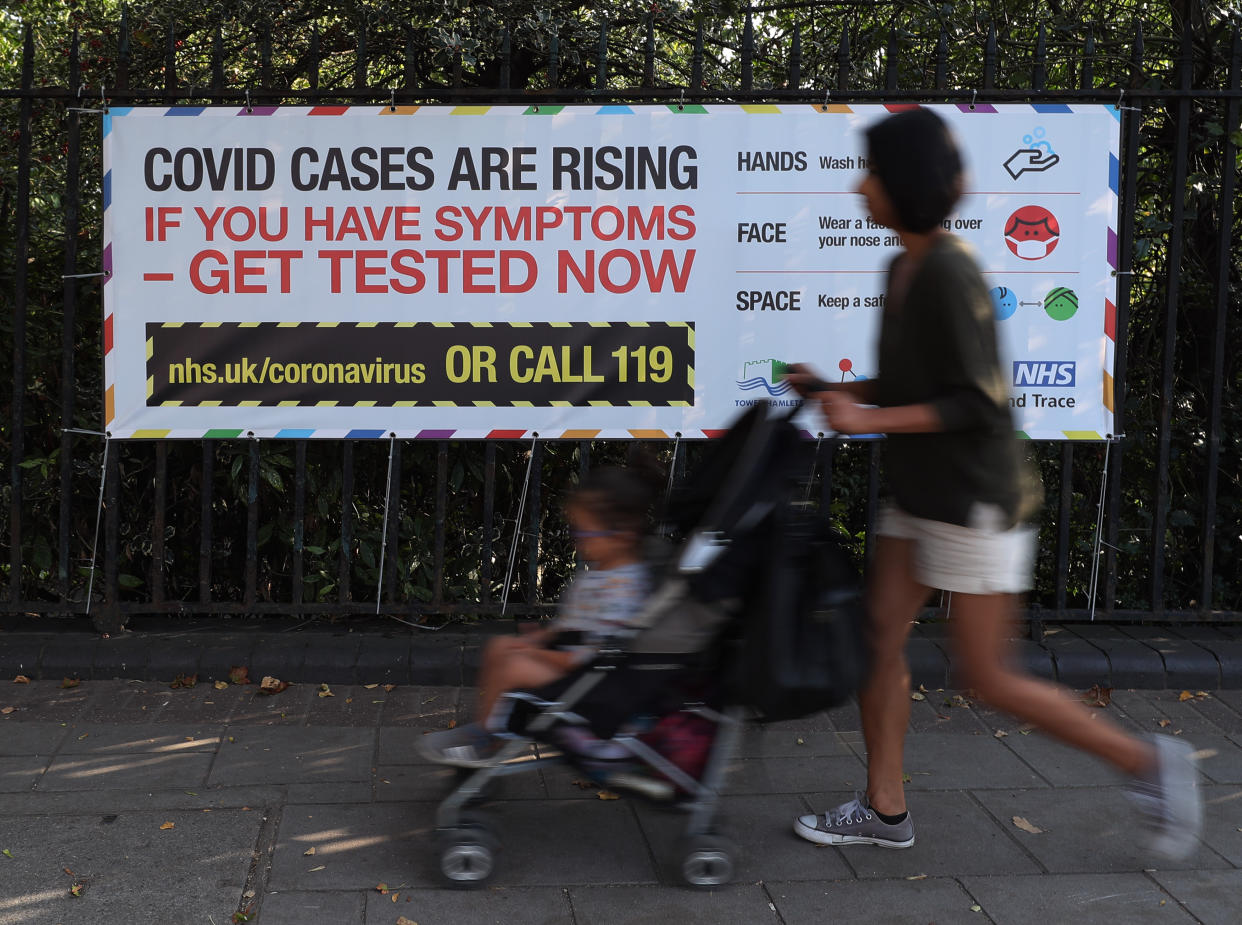Tough national lockdown is needed right now to stop COVID spread, says Sage adviser

With COVID-19 rates in England continuing to rise, a government adviser is pushing for a second national lockdown to bring them under control.
Professor John Edmunds, who sits on the scientific advisory group for emergencies (Sage), said local measures such as those introduced in some northern cities last week had failed.
As a result, Edmunds said more stringent lockdown restrictions are now needed to bring the pandemic under control.
Speaking on the day it was revealed that the UK-wide seven-day COVID-19 rate had increased to 125.7 cases per 100,000 people from 63.8 a week ago, Edmunds told the BBC’s Newsnight: “We need to take much more stringent measures, not just in the north of England, we need to do it countrywide, and bring the epidemic back under control.”

He said the government’s current “light touch” measures are just “delaying the inevitable”.
“We will at some point put very stringent measures in place because we will have to when hospitals start to really fill up,” he said. “Frankly, the better strategy is to put them in place now.”
Watch: What is a local lockdown?
Figures released on Tuesday showed there were 478 new hospital admissions in England on Sunday – more than 25% higher than the 386 admitted on Saturday, and the most since 3 June, when there were 491.
Local restrictions were brought in to some northern cities last week, but local leaders have argued they are “confusing” and “counter-productive”.
Asked if he would recommend a “circuit breaker” national lockdown or shutting pubs and restaurants to deal with the surge of cases and hospitalisations, Edmunds said it needed to be the “whole package”.
“It needs to be right across the whole country,” he said. “And I would include circuit breakers, which are mini-lockdowns, in order to bring cases right down.”
His comments were echoed by fellow Sage adviser Professor Calum Semple, who said a national circuit breaker should be considered.
He told BBC Radio 4’s Today programme: “It’s always easier to reduce an outbreak at the earlier stage than to let it run and then try to reduce it at a later stage.
“So, yes, circuit breakers are certainly something we should be thinking about on a national basis.”
Professor Stephen Reicher, from the University of St Andrews, said that if rates were to consistently double, the level of infections “would probably be at the same as the peak in March by the end of October”.
He added: “So the good news is we have a window of opportunity to do something.
“If we squander that window of opportunity, then we really are in trouble, then we really would be talking about going back to March in terms of lockdown measures.”
Edmunds’s comments come as Boris Johnson is facing increased resistance from Tory backbenchers over the measures currently in placed.
Twelve Conservatives voted against the government’s “rule of six” regulations as they passed a Commons vote on Tuesday.
Watch: MPs vote in favour of 'rule of six' regulations in England
However, there is expected to be a larger number of MPs from all sides of the house opposing the current 10pm curfew for pubs and restaurants when a vote is held next week.
Edmunds also dismissed the effectiveness of the 10pm curfew, saying: “I really don’t think it does anything.
“That’s not going to turn the epidemic around. We have to take much more stringent measures.”

Edmunds said the local lockdown in Leicester, where stringent restrictions included measures such as closing non-essential shops, not allowing people to mix in other people’s homes, and shutting schools and universities, “genuinely was a lockdown”.
He went on: “The term is used for everything else – Greater Manchester, Newcastle – it’s not a lockdown. You’re still free to go about your business, shops are still open and so on.
“[Leicester] is the level of intervention you need to do if you want to turn the epidemic around – not close bars an hour early.”
Coronavirus: what happened today
Click here to sign up to the latest news and information with our daily Catch-up newsletter

 Yahoo News
Yahoo News 


